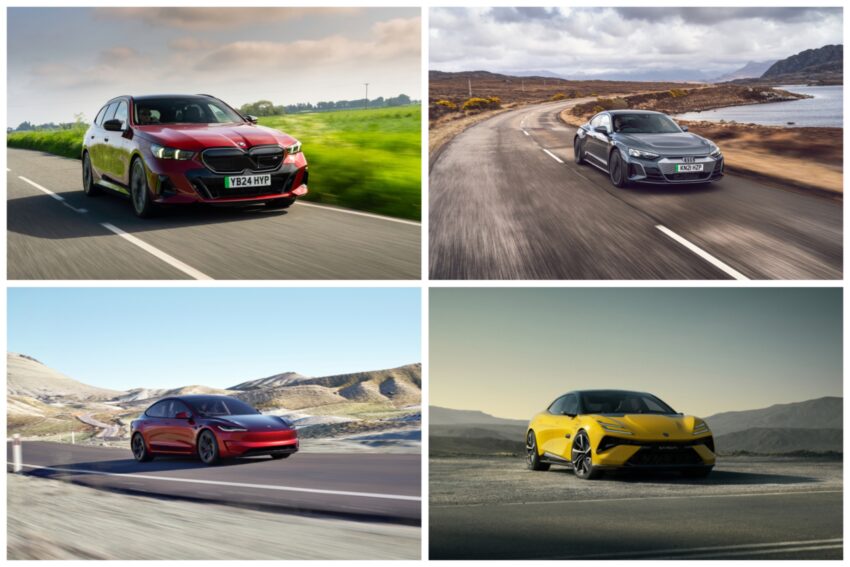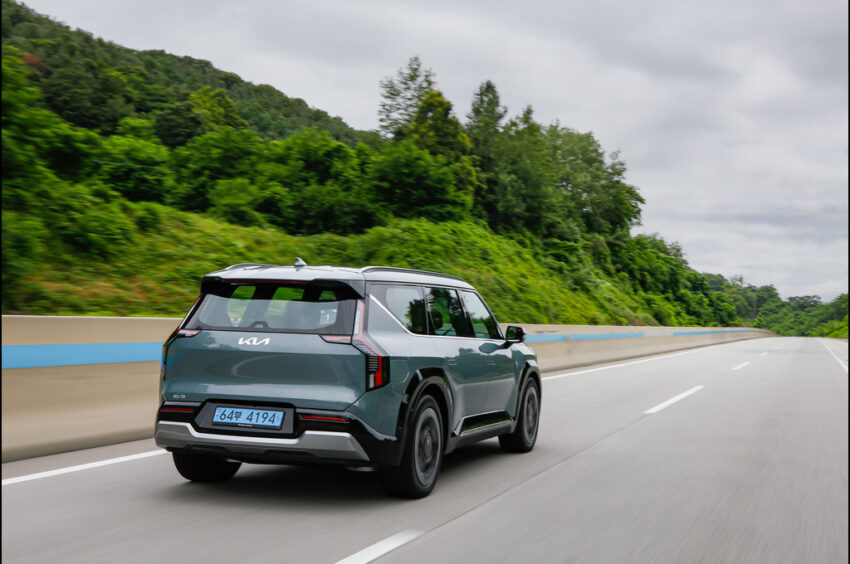The fastest-charging electric cars on sale in 2024
We run down the top 10 cars with the quickest charging times and highest charging rates.
As EV batteries get bigger and ranges get ever-longer, range anxiety is rapidly fading away.
Rather than ‘can the car make it?’ The question is more frequently, how long will it take? And if you’re out and about using the public charging network a massive part of that is how quickly a car can charge.
While older and cheaper models are stuck with pretty sluggish 50kW systems, a host of cars now offer some phenomenally quick charging rates. So f you’re always on the move and don’t like waiting around for your car to charge, it may be time to switch to one of the ultra-fast charging cars on our list.
BMW i5 – 205kW
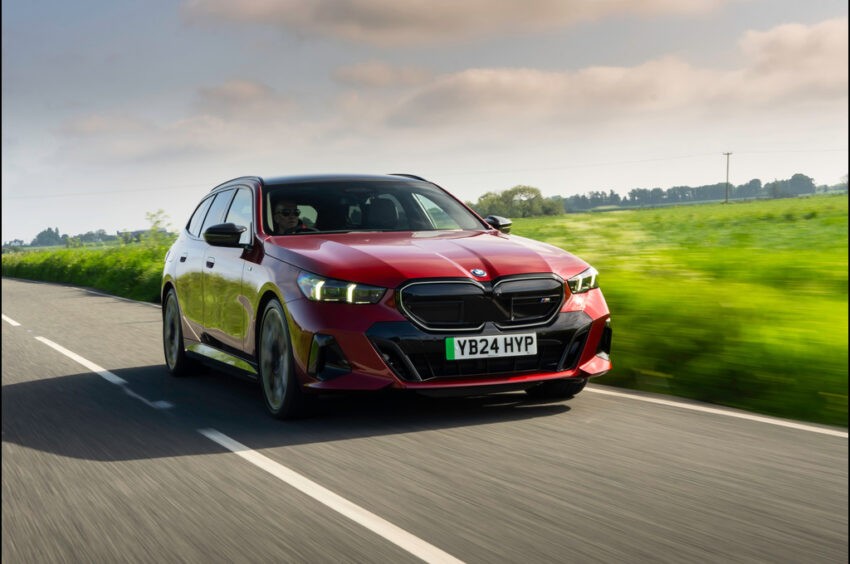
Like many other cars offered by this German giant, the i5 is available in various trim levels, but 22kW AC charging and 205kW DC come as standard across the range. Charging the i5’s 81.2kWh battery from 10-80% is then claimed to take around 30 minutes. Likewise, a 22kW AC unit will fill an empty battery to full in just four hours and 15 minutes. When charged, BMW claims the i5 will deliver between 341-356 miles of range and return 3.6-3.8mi/kWh.
Kia EV9 – 210kW
also has a massive 95kWh battery to back up its goliath physique. Kia offers two variants, a 204bhp single-motor rear-wheel drive and a 378bhp dual-motor all-wheel drive and like other brands that fall under the Hyundai group, it has an 800-volt electrical system. Park up at a powerful enough charger and the EV9 should charge at 210kW, allowing you to nip away for a pastry while you wait out the 24 minutes that it takes to charge it from 10 to 80%.
Genesis Electrified GV70 – 233kW
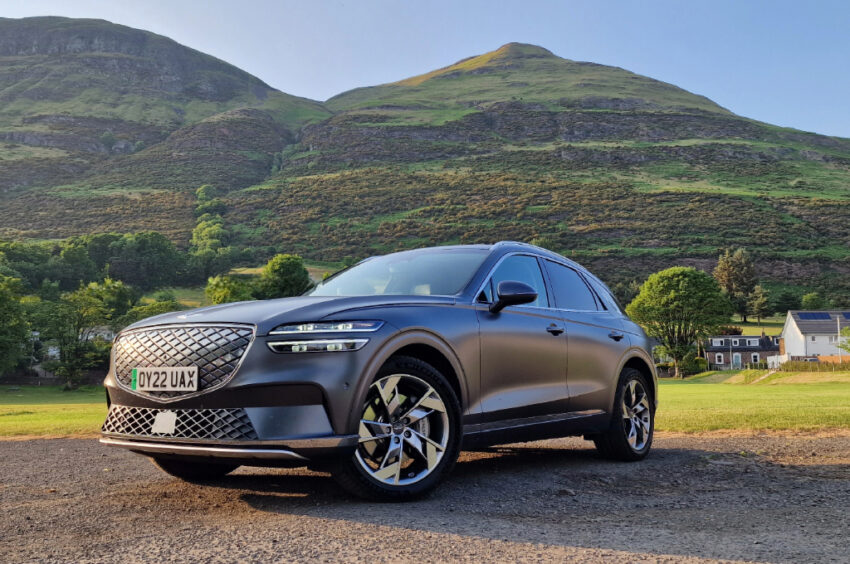
Packed neatly under the GV70’s handsome physique is an 800-volt electrical system allowing for 233kW DC rapid charging. In layman’s terms, that translates to a super-swift 18-minute 10-80% charge time. It also comes with 11kW AC charging capability, which takes around eight hours to fill from empty. Genesis claims that the Electrified GV70 is good for 283 miles when fully charged, but that’ll drop quickly if the large boost button on the steering wheel entices you.
Hyundai Ioniq 5 – 240kW
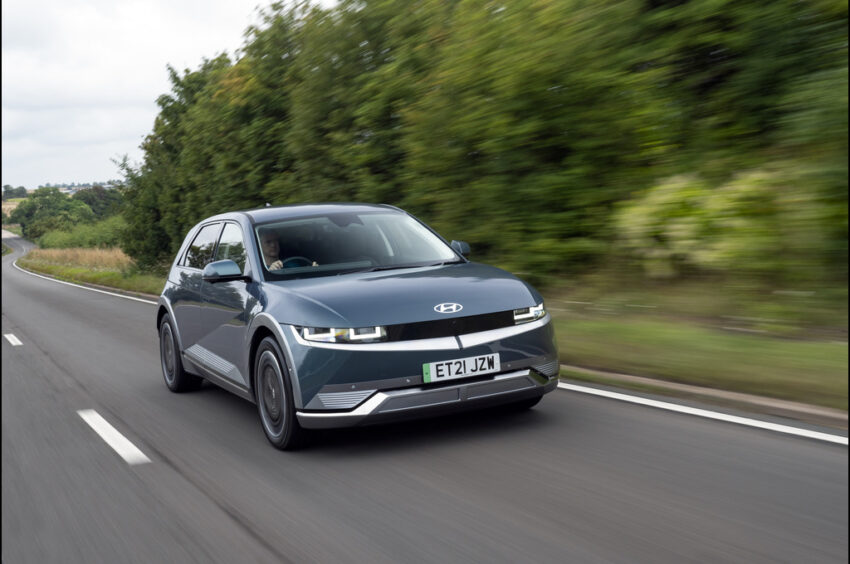
It doesn’t matter whether you opt for the base Ioniq 5 or the hair-on-fire ‘N’ guise, all cars get 240kW max DC charging and 11kW AC charging. Find a meaty enough charger, and you’ll spend around 17 minutes filling from 10-80% for the 74kWh battery. Buyers can choose from a variety of trim levels and a smaller 54kWh battery, however, this takes roughly the same time to charge as the larger one due to a lower DC rate.
Tesla Model 3 – 250kW
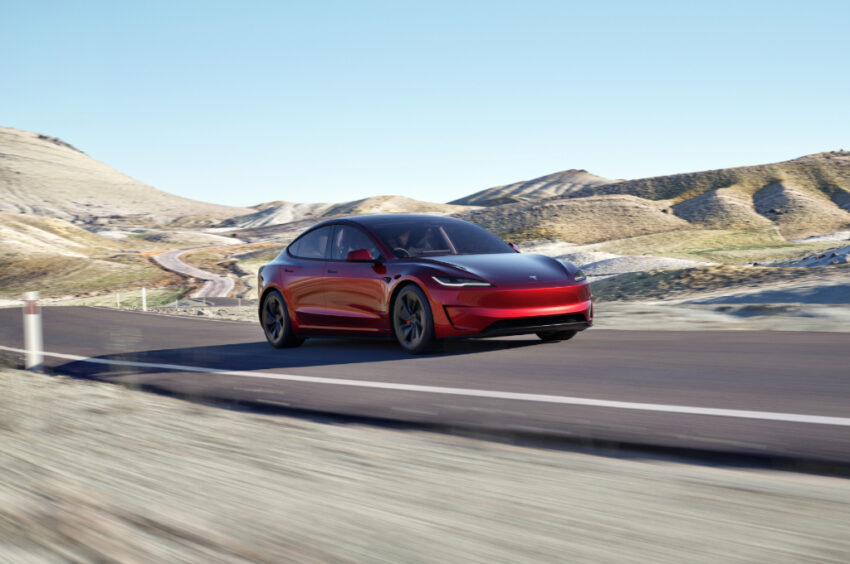
This doesn’t just apply to the Model 3 but almost every model offered by Tesla. Not only do you get access to Tesla’s vast Supercharger network, but 170kW is available for rear-wheel drive models while Long Range cars get 250kW DC charging capability. Hook up to a Supercharger, and you’ll see the battery charge from 10-80% in less than 30 minutes. If you plan on charging it from home, using a 7kW charger will take roughly nine hours in the RWD model, while the Long Range takes a slightly lengthier 12 hours. When ordering, buyers can also opt for a £475 Tesla wall charger. This comes with a 7.3m charging cable, but the purchaser will need to sort out the installation separately.
Maserati GranTurismo Folgore – 270kW
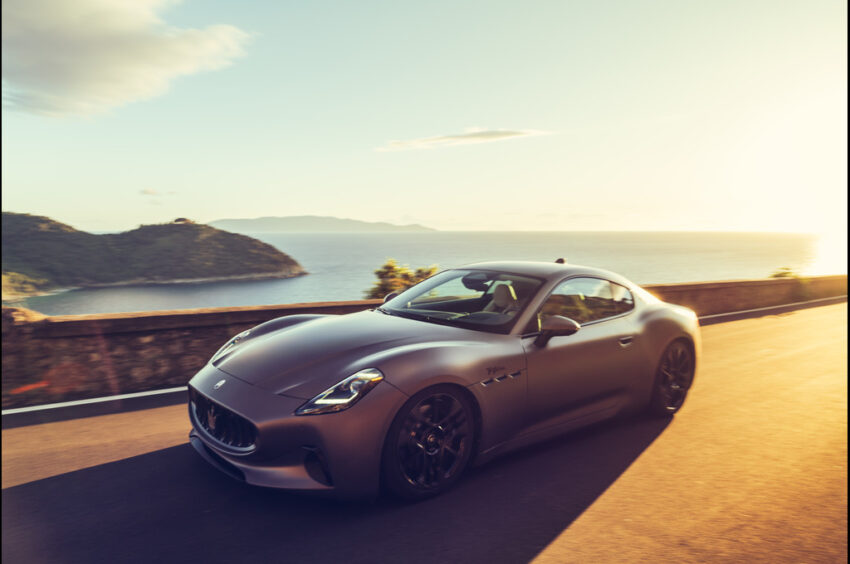
Maserati has gone all out with the GranTurismo Folgore by giving it a 750bhp and 995lb ft powertrain. It also charges at 270kW thanks to an 800-volt platform, and on a 350kW charger, the 10 to 80% charge should be over in under 20 minutes. Charging at a 150kW unit should take around 29 minutes at a speed of 370mph. Impressive figures for a car that’ll nudge 200mph if given enough room.
Audi e-Tron GT – 270kW
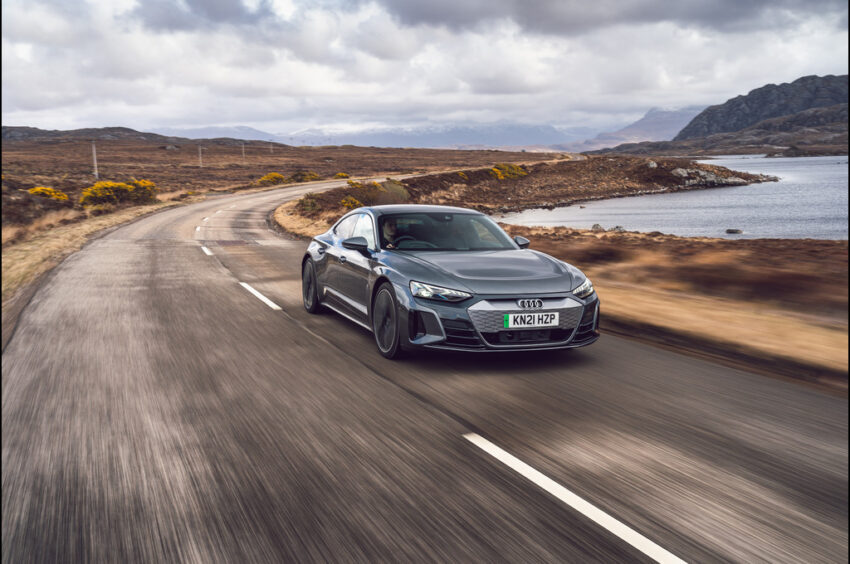
Despite its athletic appearance, the e-Tron GT weighs a hefty 2.3 tonnes. Under the bodywork lies an 97kWh battery offering a range of 375 miles (claimed), if you opt for the standard GT. Audi and Porsche hold keys to the same tech room, which means the e-Tron GT gets an 800-volt system and it will accept up to 320kW DC charging. Simply put, this will add more than 62 miles of extra range for every five minutes spent charging. The 10-80% top-up will take just 18 minutes and although it doesn’t feature a 22kW AC charger, it does have an 11kW system.
Porsche Taycan Turbo – 320kW
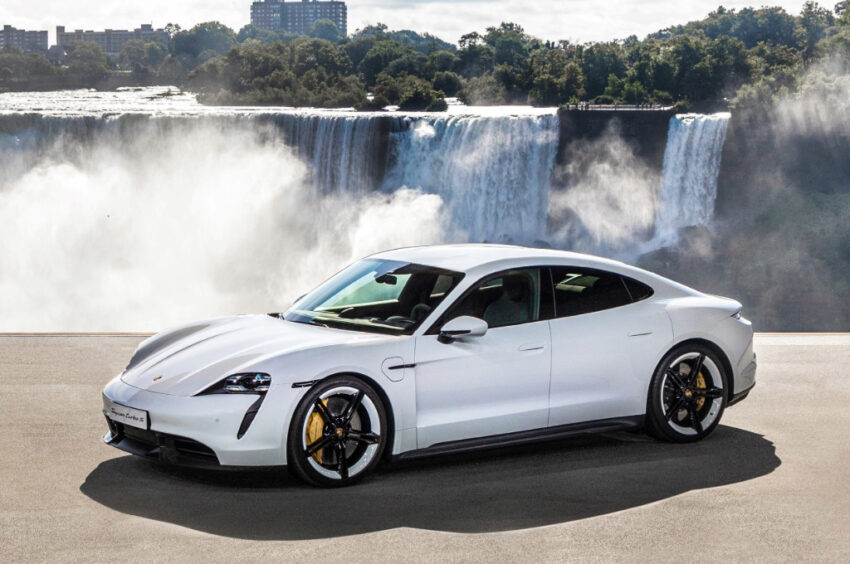
Click anything from ‘Turbo’ onwards while on Porsche’s configurator, and you’ll get 320kW charging capability and a 97kWh battery. This means that when your Turbo is plugged into a rapid charger, the 10-80% charge will take just 18 minutes. Don’t want a Turbo? You can add the £4,296 ‘Performance Battery Plus’ option to the Taycan 4S instead, and this will upgrade the standard 270kW figure and 82kWh battery to match that of the Turbo’s.
Lotus Eletre – 350kW
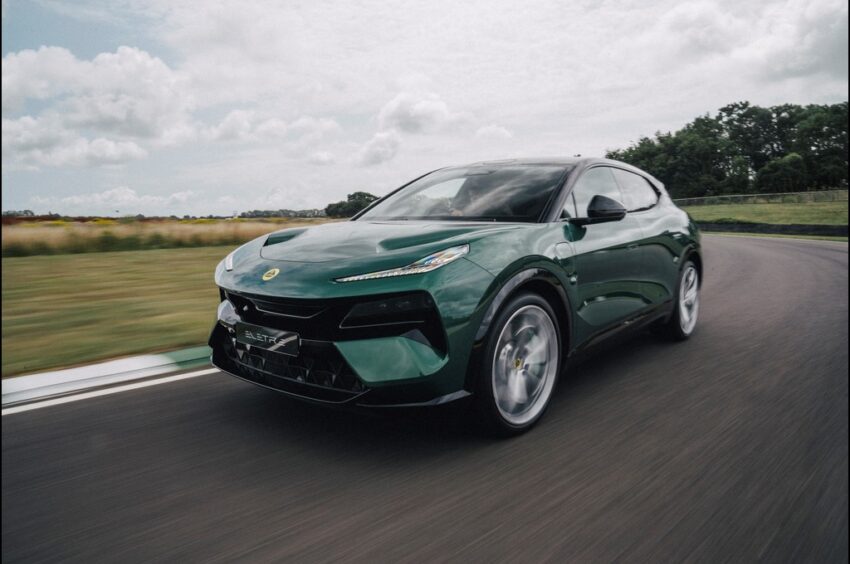
Every Eletre version has a 109kWh battery and an 800V system, bringing the charge capability up to a whopping 350kW. It’s also one of the few cars to be offered with a 22kW AC system and charging from empty to full takes just 5.8 hours. If you can find a 350kW force feeder, the Eletre will manage the 10-80% sprint in around 20 minutes, which is just enough to nip for some quick shopping. Opt for the two lower editions, and you should see a range of around 373 miles (claimed) whereas the R will need replenished every 304 miles.
Lotus Emeya – 400kW
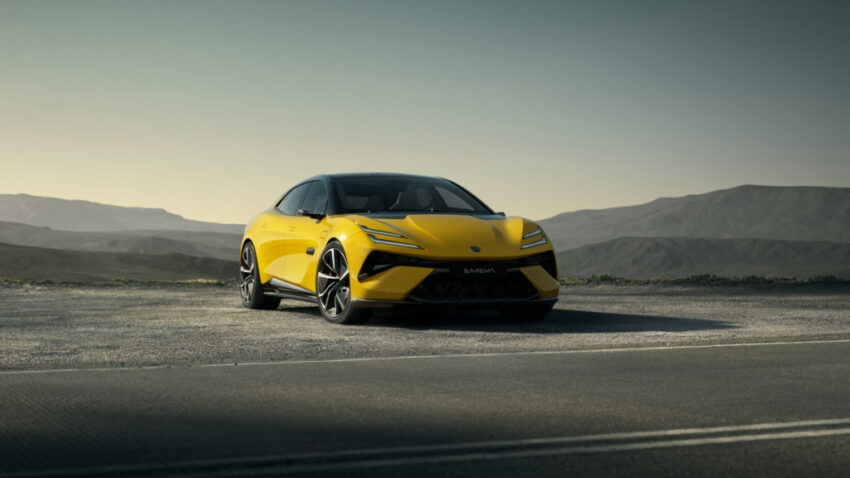
Not only does the Emeya top our fastest charging electric cars list, but it’s also smashed the record for being the fastest-charging electric car in the world. The hyper GT boasts 400kW capability, and when tested recently in Germany, the Emeya charged its 109kWh battery from 10-80% in just 14 minutes on a widely available charger. It’s claimed that the long-range GT can add around 265 miles of range in just 15 minutes. At the heart of such figures lies an impressive cooling system which consists of two cooling panels between the prismatic cells. This means efficient cooling, better battery management and greater charge speeds.

